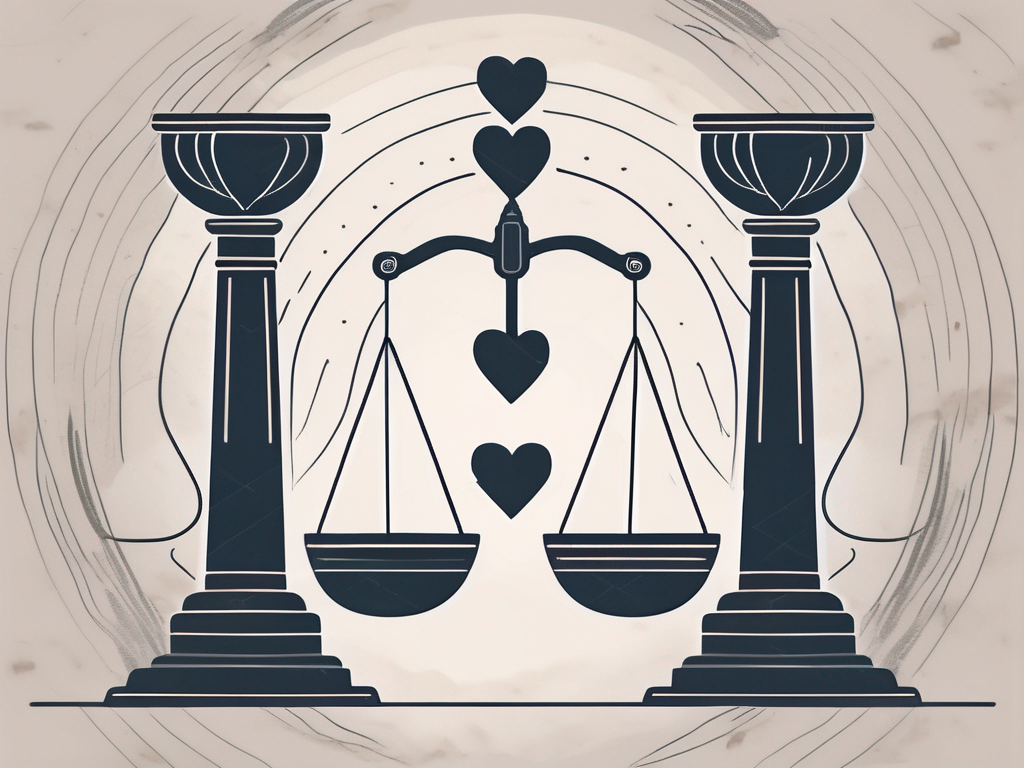Sleep is a fundamental aspect of our lives. It is essential for our physical, mental, and emotional well-being. But what does the Bible say about sleep? Let’s dive into this fascinating topic and uncover the wisdom hidden within the pages of Scripture.
Understanding the Importance of Sleep in the Bible
As we explore the subject of sleep in the Bible, it’s essential to recognize its significance. Sleep is often portrayed as a natural and necessary part of life, one that provides rest and rejuvenation. However, beyond its physiological importance, sleep also holds profound spiritual meaning.
Sleep as a Divine Gift
In the Bible, sleep is depicted as a divine gift from God. It is a gracious provision that allows us to recharge our bodies and minds. In Psalm 127:2, it states, “It is in vain that you rise up early and go late to rest, eating the bread of anxious toil; for he gives to his beloved sleep.” This verse highlights God’s loving provision of restful sleep to His beloved ones.
But what does it mean for sleep to be a divine gift? It means that sleep is not just a biological necessity but also a spiritual one. When we sleep, we enter into a state of vulnerability and surrender. We acknowledge our limitations and our need for God’s sustaining power. In this sense, sleep becomes an act of faith, a recognition that we are not in control and that we need God’s help even in our rest.
Sleep and Rest in the Old Testament
In the Old Testament, sleep often symbolizes the rest and peace that God provides to His people. For example, in Psalm 3:5, King David wrote, “I lay down and slept; I woke again, for the Lord sustained me.” David’s trust in God allowed him to find rest in the midst of challenges and uncertainties.
But rest goes beyond physical rejuvenation. It is a state of the soul, a deep sense of peace and security that comes from knowing that we are in God’s hands. In Exodus 33:14, God assures Moses, “My presence will go with you, and I will give you rest.” This verse emphasizes that our ultimate source of rest comes from being in the presence of God.
Imagine the Israelites wandering in the desert, tired and weary. They longed for a place of rest, a place where they could find peace and security. And yet, it was not just a physical rest they needed, but a spiritual one. They needed to find their rest in God, to trust in His promises and His provision. And so do we.
Sleep in the New Testament
In the New Testament, sleep takes on a different significance. It frequently refers to physical death and the hope believers have in the resurrection. For instance, in 1 Thessalonians 4:14, Paul writes, “For since we believe that Jesus died and rose again, even so, through Jesus, God will bring with him those who have fallen asleep.” This verse assures us that those who have died in Christ will one day be raised to eternal life.
But why does Paul use the metaphor of sleep to describe death? Perhaps it is because sleep is not the end. When we sleep, we expect to wake up again. Similarly, death is not the end for believers. It is a temporary state of rest before we are awakened to eternal life in the presence of God.
Moreover, Jesus Himself referred to death as sleep when He spoke of the girl who had died. In Mark 5:39, Jesus said, “Why are you making a commotion and weeping? The child is not dead but sleeping.” Jesus demonstrated His power over death by raising the girl back to life.
So, as we reflect on the importance of sleep in the Bible, let us remember that it is not just a physical necessity but a spiritual one. It is a gift from God that allows us to rest and recharge, both in this life and in the hope of eternal life to come.
Biblical Characters and Their Sleep Experiences
Throughout the Bible, various characters encounter significant sleep experiences that offer valuable insights into the spiritual dimension of sleep.
Sleep of Adam and the Creation of Eve
In the book of Genesis, we read about Adam’s deep sleep when God created Eve. God caused Adam to fall into a profound slumber, and from his side, He formed Eve. This story highlights God’s creativity and intervention during our vulnerable moments of rest.
As Adam slept, he was completely unaware of the incredible transformation that was taking place. It was in his slumber that God performed a miraculous act of creation, fashioning Eve from Adam’s rib. This profound sleep experience not only resulted in the formation of the first woman but also symbolizes the deep connection between sleep and the divine. It serves as a reminder that even in our unconscious state, God is at work, shaping our lives and bringing forth new beginnings.
Jacob’s Dream at Bethel
A remarkable sleep experience is found in Genesis 28, where Jacob rested his head on a stone and had a vivid dream at Bethel. In his dream, he saw a stairway to heaven and received God’s promise and blessing. This account demonstrates that God can speak to us and reveal His plans even through our dreams and sleep.
As Jacob lay on the hard ground, using a stone as a pillow, he entered into a state of deep slumber. Little did he know that this seemingly uncomfortable sleep would become the gateway to a divine encounter. In his dream, he witnessed a celestial ladder connecting heaven and earth, with angels ascending and descending. This extraordinary vision revealed God’s presence and His intention to bless Jacob and his descendants. It serves as a powerful reminder that our sleep is not just a time of physical rest but also a time when God can communicate with us, providing guidance, comfort, and assurance.
Jesus Calming the Storm While Asleep
One of the most memorable sleep anecdotes is found in the New Testament when Jesus was sleeping in the boat amid a raging storm. His disciples feared for their lives while Jesus remained sound asleep. Jesus’ calmness in the midst of the storm reassures us of His unwavering presence and His ability to bring peace even in turbulent times.
As the disciples panicked and the waves crashed against the boat, Jesus peacefully slumbered, undisturbed by the chaos surrounding Him. His deep sleep was a testament to His trust in His Father’s protection and His authority over the forces of nature. This sleep experience serves as a profound reminder that even in the midst of life’s storms, we can find solace and tranquility in our relationship with Jesus. Just as He calmed the storm with a word, He can bring peace and stillness to our restless souls, granting us the rest we desperately need.
The Symbolism of Sleep in the Bible
Sleep is often used as a metaphor to convey deeper spiritual concepts and truths in the Bible. It serves as a powerful symbol that represents various aspects of our spiritual journey and relationship with God.
Sleep as a Metaphor for Spiritual Lethargy
In several instances, the Bible uses sleep metaphorically to address spiritual lethargy or complacency. It serves as a wake-up call to believers, urging them to shake off their spiritual slumber and actively pursue a vibrant relationship with God. In Ephesians 5:14, the apostle Paul passionately exhorts believers to wake up from their spiritual slumber, saying, “Awake, O sleeper, and arise from the dead, and Christ will shine on you.” This verse serves as a powerful reminder that we are called to be alert and actively engaged in our faith, living in the light of Christ.
Just as physical sleep can leave us feeling groggy and disconnected from the world around us, spiritual lethargy can hinder our ability to fully experience the abundant life that God has promised us. It is a call to action, prompting us to examine our hearts and renew our commitment to following Christ wholeheartedly.
Sleep as a Symbol of Death
As mentioned earlier, sleep is often used to symbolize physical death in the New Testament. It reflects the belief in the resurrection and the hope of eternal life in Christ. Just as we trust in God to wake us up from sleep each morning, we also have faith that He will raise us to new life after death.
When Jesus spoke to His disciples about the death of Lazarus, He referred to it as sleep, saying, “Our friend Lazarus has fallen asleep; but I am going there to wake him up” (John 11:11). Jesus used this metaphor to illustrate that death is not the end for believers, but rather a temporary state of rest before being awakened to eternal life in His presence.
This symbolism of sleep as a representation of death provides comfort and assurance to believers, reminding them that physical death is not the ultimate end, but rather a transition into a glorious and everlasting existence with God. It offers hope in the face of mortality and serves as a reminder that our lives on earth are but a fleeting moment compared to the eternity that awaits us.
Furthermore, this symbolism emphasizes the significance of Christ’s resurrection, as He triumphed over death and opened the way for all believers to experience eternal life. Just as we trust in God to wake us up from sleep each morning, we can trust in His power to raise us to new life in Him.
In conclusion, the symbolism of sleep in the Bible goes beyond its literal meaning. It serves as a powerful metaphor for spiritual lethargy and complacency, urging believers to wake up and actively pursue a vibrant relationship with God. Additionally, sleep symbolizes physical death, reminding us of the hope we have in Christ’s resurrection and the promise of eternal life. As we delve deeper into the rich symbolism of sleep in the Bible, may it inspire us to live with greater intentionality and faith, fully embracing the abundant life that God has in store for us.
Biblical Verses About Sleep and Rest
The Bible offers us numerous verses that affirm the importance of restful sleep and warn against laziness or oversleeping.
Verses Encouraging Restful Sleep
Psalm 4:8 reminds us of God’s presence and protection as we sleep: “In peace, I will both lie down and sleep; for you alone, O Lord, make me dwell in safety.” This verse inspires us to find peace in God’s care and to rest peacefully.
Additionally, Proverbs 3:24 assures us that when we lie down, our sleep will be sweet: “If you lie down, you will not be afraid; when you lie down, your sleep will be sweet.” This verse reminds us that a quiet and peace-filled sleep is a gift from the Lord.
Verses Warning Against Laziness and Oversleeping
In contrast to the importance of rest, the Bible also cautions against laziness and excessive sleep. Proverbs 6:9-11 warns us of the consequences of oversleeping: “How long will you lie there, O sluggard? When will you arise from your sleep? A little sleep, a little slumber, a little folding of the hands to rest, and poverty will come upon you like a robber, and want like an armed man.” These verses encourage us to find a healthy balance between rest and productivity.
Practical Lessons About Sleep from the Bible
As we conclude our exploration of sleep in the Bible, let’s reflect on some practical lessons we can learn from the Scriptures.
The Balance Between Work and Rest
The Bible reinforces the importance of finding a balance between work and rest. While sleep is necessary for our well-being, excessive slothfulness can lead to negative consequences. We should approach our daily routines with diligence and productivity while also prioritizing rest and self-care.
Trusting God for a Peaceful Sleep
Scripture reminds us to trust in God for a peaceful sleep, knowing that He watches over us. Instead of being consumed by worries, anxieties, or fear, we can find solace in the knowledge that God is our ultimate protector and provider.
The Call for Vigilance and Wakefulness in Spirituality
In our spiritual journey, the Bible calls us to remain vigilant and awake. We are encouraged to stay attentive to God’s voice through His Word and the prompting of the Holy Spirit. Just as Jesus urged His disciples to watch and pray, we should continuously seek a deeper connection with God.
In conclusion, the Bible provides us with a rich tapestry of wisdom and insights about sleep. It reminds us of the divine gift of rest, the symbolism sleep carries, and the practical lessons we can apply to our lives. May we find solace in God’s provision of sleep and embrace its spiritual significance as we rest in His care.












